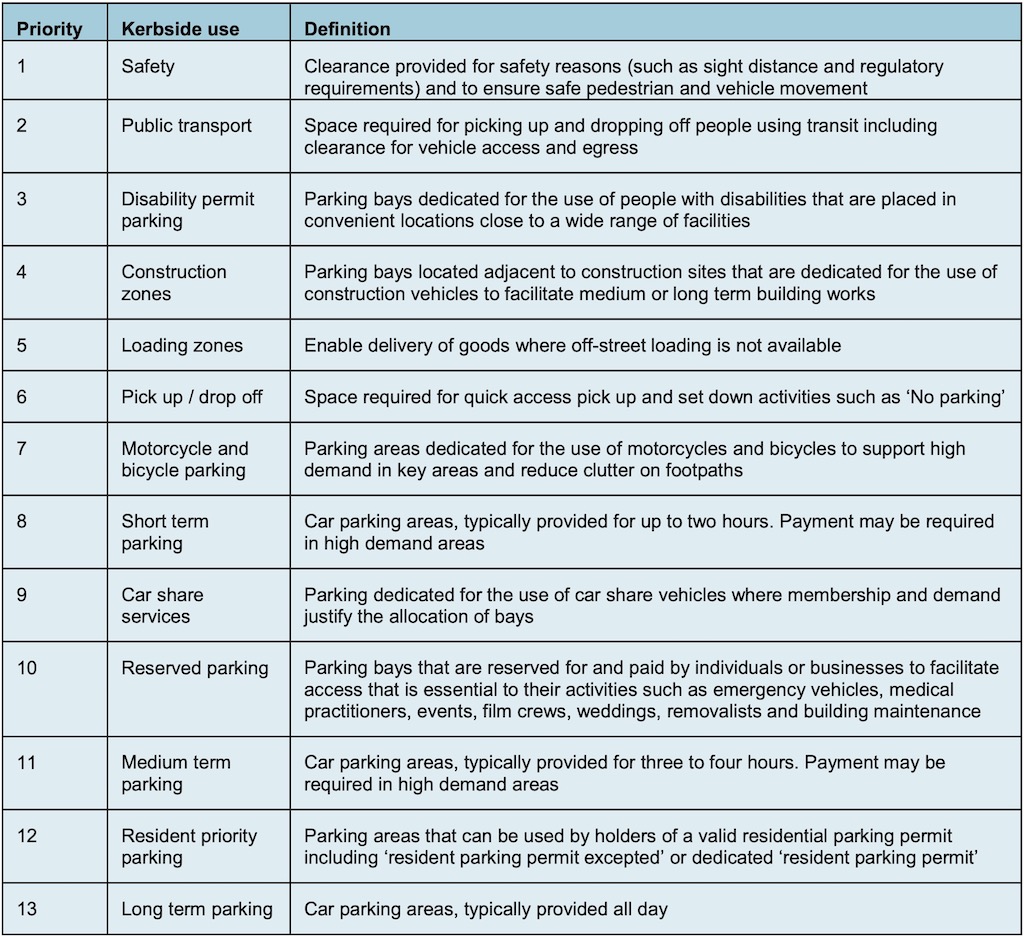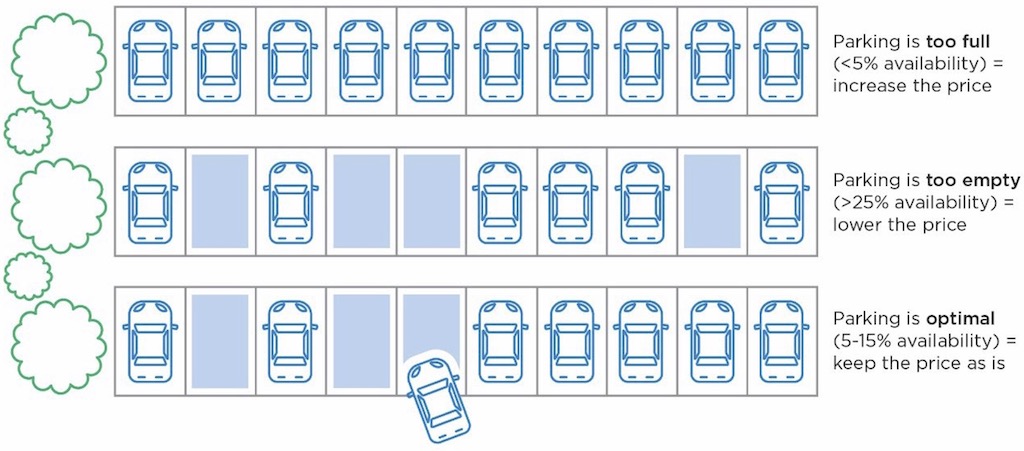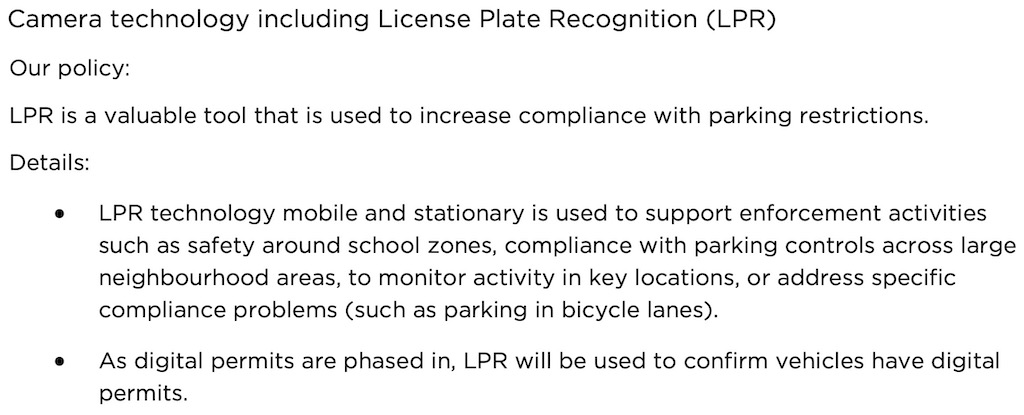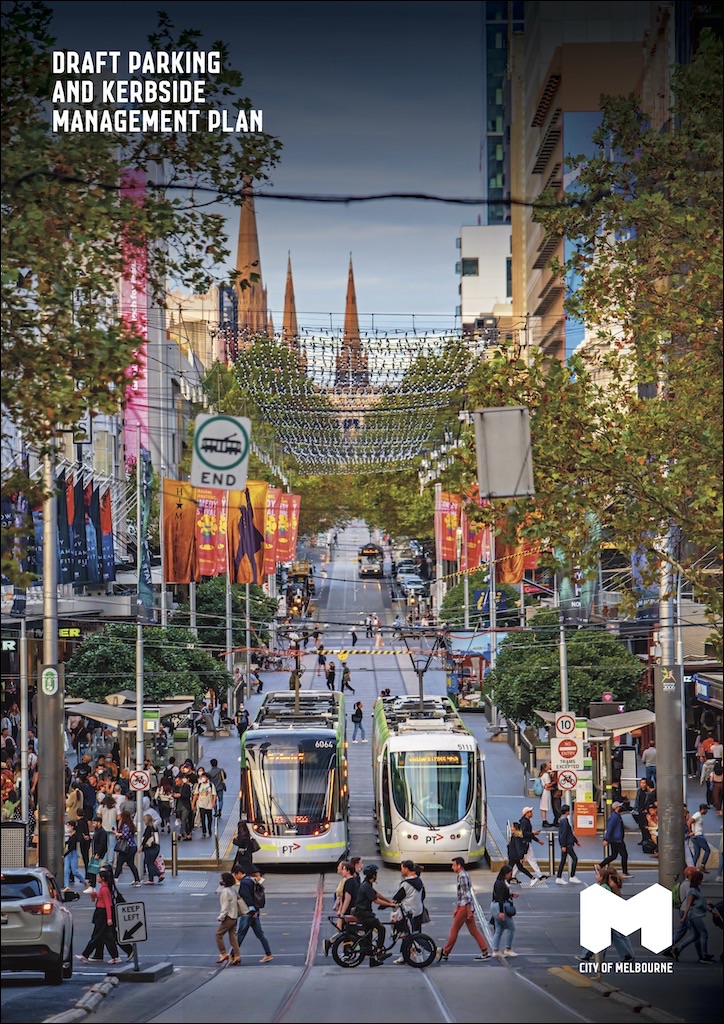The City of Melbourne has adopted a draft Parking and Kerbside Management Plan, which is now out for community consultation:
Most importantly, the draft recognises that on-street parking is subsidised:

The draft clearly defines a hierarchy of uses, with safety at the top and parking for residents or commuters down at the bottom:

Reflecting the hierarchy, the City of Melbourne will reconfigure the location of parking bays into consistent designs, making it easier for users to find the right type of bay. For example, the Uber pickup point will always be at the start of a block, while the disabled parking bay will always be at the end of a block.

To manage parking, the City of Melbourne is transitioning to digital permits:

Digital permits make it easy to apply demand responsive pricing, which helps to ensure that people who need to drive and park are able to find a vacant parking bay:

The digital permits will be linked to the number plate of the vehicle, and enforced using number plate recognition:

Our view
The draft has many good elements that the City of Yarra should adopt. We’d be happy if Yarra adopted the entire document, and collaborated with the City of Melbourne on joint procurement of parking services from technology providers.
As we’ve described in our better for parking page, people should be able to:
- find a park near their destination, and
- avoid a fine during their stay.
However, the problems with Yarra’s parking bays are:
- they are often fully occupied; or
- drivers risk over-staying and getting a fine.
Adopting a Parking Plan similar to the City of Melbourne’s would solve those problems, and deliver the following benefits:
- Shoppers would be able to find a park near shopping streets, and avoid a fine
- Residents would benefit from expanded permit only zones, protecting them from commuters who look for free parking
- Residents would benefit from being able to offer a visitor permit to multiple guests at the same time, e.g. for a family dinner party
- Council would benefit from not having to send out physical ‘paper’ or ‘sticker’ permits each year
- Residents wouldn’t have to remove their physical ‘sticker’ permit from their windscreen each year and apply the new one
- Residents who were previously ineligible for permits would be able to purchase a permit, albeit at a higher price level
- Commuters would be able to purchase a parking permit, albeit at an even higher price that is comparable to what a homeowner pays in rates
- Ratepayers would benefit from increased council parking enforcement effectiveness and reduced parking enforcement costs
- Ratepayers would benefit from increased revenue, which should be reinvested directly back into the neighbourhood that generated the revenue, for trees, place making, wider footpaths, better footpath paving, pedestrian crossings, pocket parks, etc.
Published 28th March 2023

